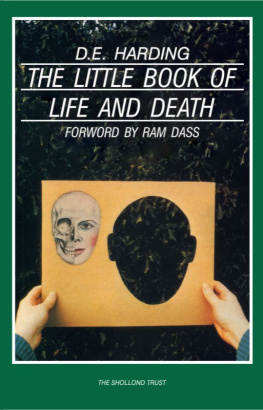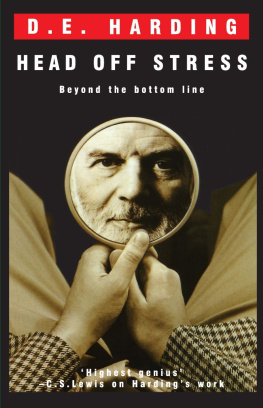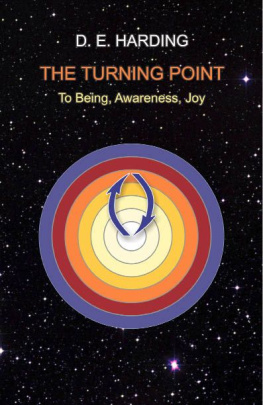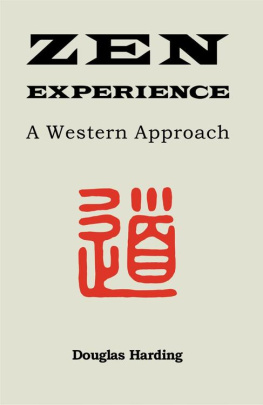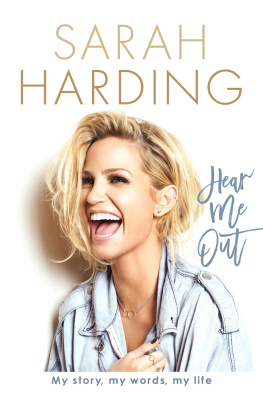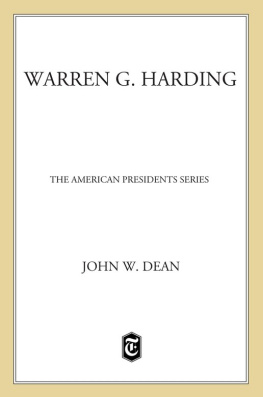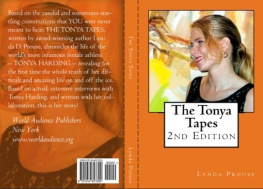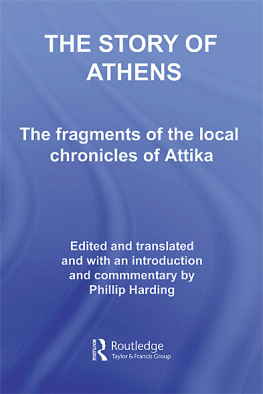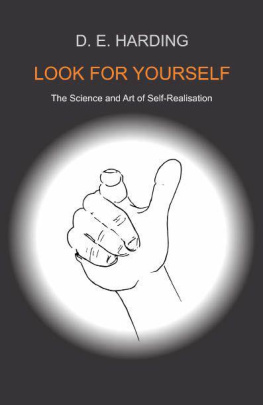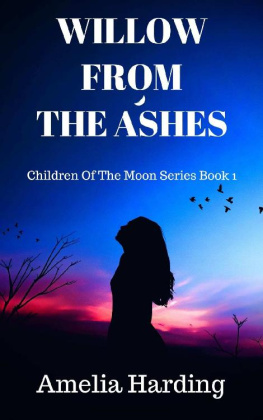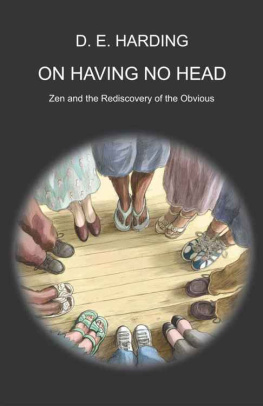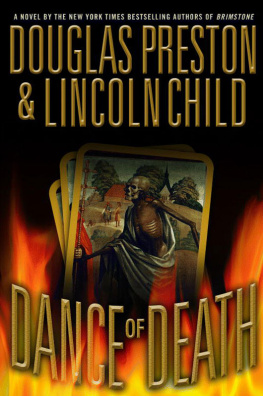Douglas Harding - The Little Book of Life and Death
Here you can read online Douglas Harding - The Little Book of Life and Death full text of the book (entire story) in english for free. Download pdf and epub, get meaning, cover and reviews about this ebook. year: 2011, publisher: The Shollond Trust, genre: Religion. Description of the work, (preface) as well as reviews are available. Best literature library LitArk.com created for fans of good reading and offers a wide selection of genres:
Romance novel
Science fiction
Adventure
Detective
Science
History
Home and family
Prose
Art
Politics
Computer
Non-fiction
Religion
Business
Children
Humor
Choose a favorite category and find really read worthwhile books. Enjoy immersion in the world of imagination, feel the emotions of the characters or learn something new for yourself, make an fascinating discovery.
- Book:The Little Book of Life and Death
- Author:
- Publisher:The Shollond Trust
- Genre:
- Year:2011
- Rating:3 / 5
- Favourites:Add to favourites
- Your mark:
- 60
- 1
- 2
- 3
- 4
- 5
The Little Book of Life and Death: summary, description and annotation
We offer to read an annotation, description, summary or preface (depends on what the author of the book "The Little Book of Life and Death" wrote himself). If you haven't found the necessary information about the book — write in the comments, we will try to find it.
The Little Book of Life and Death — read online for free the complete book (whole text) full work
Below is the text of the book, divided by pages. System saving the place of the last page read, allows you to conveniently read the book "The Little Book of Life and Death" online for free, without having to search again every time where you left off. Put a bookmark, and you can go to the page where you finished reading at any time.
Font size:
Interval:
Bookmark:


THE LITTLE BOOK OF LIFE AND DEATH
Douglas Harding was born in 1909 in Lowestoft, England, into a family that for two generations had belonged to the religious sect known as the Exclusive Plymouth Brethren. At twenty-one, while studying architecture at University College, London, Harding apostatized from the Brethren, and began his search for himself, for his own way to 'the Truth that sets us free'.
Harding practised architecture in London, India and his native Suffolk, but his real and lifelong concern was to develop a credible, intellectually honest and practical alternative to the faith he lost when he left the Brethren. This book was one of the results of that overriding passion. He wrote much on the same subject, taught comparative religion and philosophy, and lectured and conducted workshops around the world on 'seeing Who we really are'. Harding died in 2007 at the age of 97.
Cover design
At the heart of this book are nine practical Tests for Immortality, and at their heart is the test entitled 'Putting on Immortality'. Accordingly it features on the cover.
Foreword
The Little Book of Life and Death is a delight. In it I hear an echo of the cosmic giggle. It speaks with a humor and simplicity that is equal to the task which it has set for itself of confronting the conceptual hobgoblins of mortality and exposing the fallacy of death. I am amazed that such a little book can so thoroughly decimate cherished beliefs in matters from birth to ageing to the hereafter, and do it so painlessly and even joyfully. This is the mark of true compassion that arises out of emptiness.
Following in the tradition of the Buddha who cautioned that we do not take another's word about the truth of existence, but rather experience for ourselves, D.E.H. poses a number of provocative experiments for himself and us which one by one topple our preconceptions about ourselves. With the same uncompromising stance as a Ramana Maharshi, he leads us deeper into the no-person land of 'Neti, Neti!' (Not that, not that!) until we reach the point where we are ... all and everything. The journey takes us through Western science (NDEs and quarks) and the mystic traditions of East and West. Again and again D.E.H. rejects the gentle ascents reflected in such doctrines as reincarnation and karma in favor of the steep Zen path that has no railing.
D.E.H., like my own guru, Neem Karoli Baba, is in the tradition of 'spiritual rascals.' The fact that his body is 79 years of age, he suggests, impels him on with a sense of urgency which, in the uncertainty of our times, is catchy. For he realizes that if he doesn't extricate himself from being somebody, before he dies, he will, in the words of Rumi, 'end up with an apartment in the city of death.' But I am not fooled. He is only playing with us. For he is worthy of the accolade bestowed on the great masters when they are called 'the living dead.' And what he has offered us is a graceful gift. As a result of this gift, I predict, the literature on dying will never be the same again.
Ram Dass
Prologue
To die is different from What anyone supposes And luckier. Walt WhitmanIt used to be the custom of Zen masters on their deathbeds to compose a gatha a poetic condensation of the insights of a long and dedicated spiritual life, a final comment on life itself and impending death. This essay is my concluding gatha. Or rather, it would be if I were a Zen master (or at least a Zen man), and I had obviously come to the very end of my life, and I were writing in verse.
All the same, the composition of something like a secular and prose gatha at this time strikes me as not just a useful exercise a sorting out and taking stock and overall clarification but a project that's necessary for my own sake if for no others, and very urgent, and in fact long overdue. For already, at seventy-nine, I have lived two or even three times as long as people did on the average not so many centuries ago. And of course every new day spent in death row, waiting for the sentence to be carried out, brings that much nearer the moment when I will finally be whisked out of life perhaps with no warning at all. Into what? Is there a more pressing, more crucial question? It seems to me silly, contemptibly ostrich-like and altogether irresponsible, not to prepare for that moment of truth by asking myself now ... and now ... and now (while the asking is good, and I'm not ill or in pain or drugged or pushed for time) such questions as: 'Exactly what is it to live, and then to die? Must I in fact die at all, and if I must is this indeed a dead end, the great let-down, the bitter and messy conclusion of the adventure that began so promisingly way back in 1909? And, above all, is it possible to do something right now, first to ensure survival, and second to influence its quality and ensure that it's worthwhile and preferable to annihilation?'
Going into these questions as candidly and comprehensively as possible is just about the most practical endeavour of my whole life. Even if no one else were to read my pseudo-gatha it demands to be written, clearly and honestly. (I've got to do my utmost to be honest with myself: on this of all subjects any suppression of unwelcome evidence, any cheating, would make the whole project a ridiculous waste of time.) I could call it my own highly 'personal' and de-mythologized Book of the Dead not remotely Egyptian or Tibetan of course, or even religious in any ordinary sense, but frankly contemporary and Western and matter-of-fact. For I aim to conduct this enquiry in a spirit that values the most threadbare shred of present evidence, the faintest glimmer of first-hand experience, the least impulse of humility in the face of the given, more highly than libraries full of scriptures and learned commentaries. Here nothing however uplifting and sacred is for believing; everything however mundane is for trying out and testing. In this life-or-death matter I can afford to take no teaching on trust, to rely on no one's say so and to neglect no clue. Here at death's door if nowhere else I find myself forced to follow the dying Buddha's advice and be a lamp to myself, to take myself to no outside refuge.
This cautious-disrespectful attitude to the religious establishment, to all hallowed authority, is made even more necessary now that (as I shall presently show in some detail) important new empirical evidence on our subject is available. This evidence is of three sorts. The first arises from the skills and the sceptical and far-ranging attitude of modern science, together with some of its actual discoveries particularly in particle physics. The second arises from recent research into the anecodotes of patients who have been brought back from near death. The third rises from a range of simple experiments I have been using over the past thirty years for investigating our intrinsic nature or First Personhood, techniques for directly perceiving who or what it is here that is conducting these experiments, who or what it is that lives and dies, who or what it is that does nothing of the sort. (A selection of these experiments constitutes the backbone of this book, and when carried out and not just read about cannot fail to settle the question of one's nature and destiny.) These three developments and specially the last demand that the whole subject be opened out freshly, and that we should start from scratch with as unprejudiced a mind as possible.
Next pageFont size:
Interval:
Bookmark:
Similar books «The Little Book of Life and Death»
Look at similar books to The Little Book of Life and Death. We have selected literature similar in name and meaning in the hope of providing readers with more options to find new, interesting, not yet read works.
Discussion, reviews of the book The Little Book of Life and Death and just readers' own opinions. Leave your comments, write what you think about the work, its meaning or the main characters. Specify what exactly you liked and what you didn't like, and why you think so.

